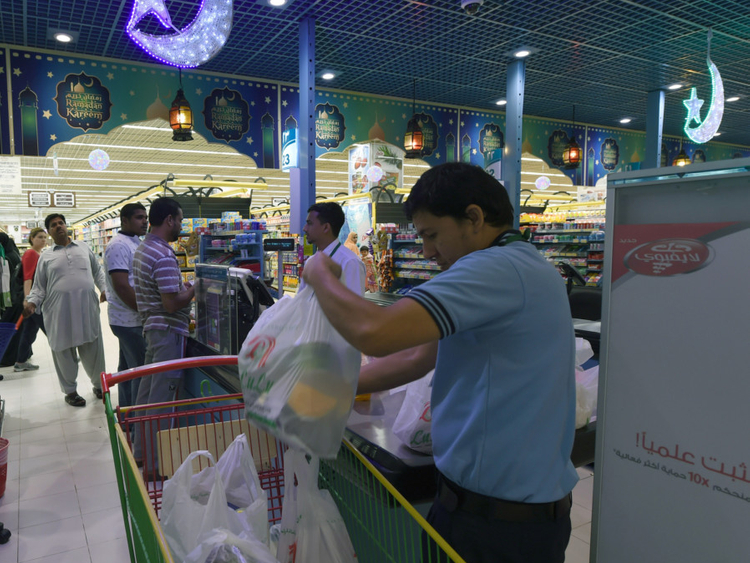Abu Dhabi: Over the years, a shift has occurred in Abu Dhabi residents’ food safety concerns while they dine out and shop, a senior official told Gulf News.
Thamer Al Qasimi |
“Earlier, people would complain about food poisoning or similar major issues but now they take up even minute issues such as any unhygienic act by a restaurant staffer or technical issues like listings on food labels,” Thamer Al Qasimi, director of Communications and Community Services Department at Abu Dhabi Food Control Authority (ADFCA), said in an interview.
He welcomed this trend as it reflected increased awareness on food safety.
“It shows that people have high expectations on food safety and we are trying to raise the bar on safety measures,” Al Qasimi said.
Complaints about food labels also reflect people’s increased awareness on technical matters. Some complaints said that food labels did not specifically mention all ingredients in a particular food item as stipulated by the law, the official said.
A complainant brought a packed food with animal ingredient, which was not mentioned in its food label. People raise complaints about the authenticity of ‘halal’ [slaughtered as per Islamic law] meat products, if it is not properly mentioned in food labels, Al Qasimi said.
“This shows that ADFCA’s regular awareness campaigns have borne fruit. We have been asking people to carefully read food labels before purchasing food products,” he explained.
Some other complaints about minor issues include doubts about the presence of hair in served food and inadvertent unhygienic acts of workers at food outlets.
The ADFCA calls food safety-related problems as ‘food incidents’ and around 30 per cent of total feedback received from residents a month fall under this category, Al Qasimi said. “Of around 250 responses received by us a month, around 70 to 80 are about food incidents, and the rest of them are enquiries, requests and suggestions,” he said.
On complaints about food safety issues, the ADFCA inspectors apply due diligence before penalising food outlets, he said.
For example, on a complaint about hair found in a dish at a restaurant, the authority does not take action against the accused restaurant based on the food sample only. “The inspectors will visit the restaurant at the earliest and will check whether restaurant employees are following the rules and regulations on hygiene such as wearing gloves and caps. They will also inspect the quality of cooked food.”
Action will be taken if any such violations are found by the inspectors, Al Qasimi explained.
The authority conducted special inspection campaigns during Ramadan, which covered restaurants, groceries, Ramadan tents, catering services, traditional kitchens, sweets and chocolate shops, and vegetable and fruit markets. Sweets and chocolate shops will come under inspectors’ radar again ahead of Eid Al Fitr as they attract more customers during the festival, the official said.
In figures
250 responses ADFCA receives a month
30% feedback or 70-80 responses are on ‘food incidents’
160 to 170 responses are enquiries, requests and suggestions














